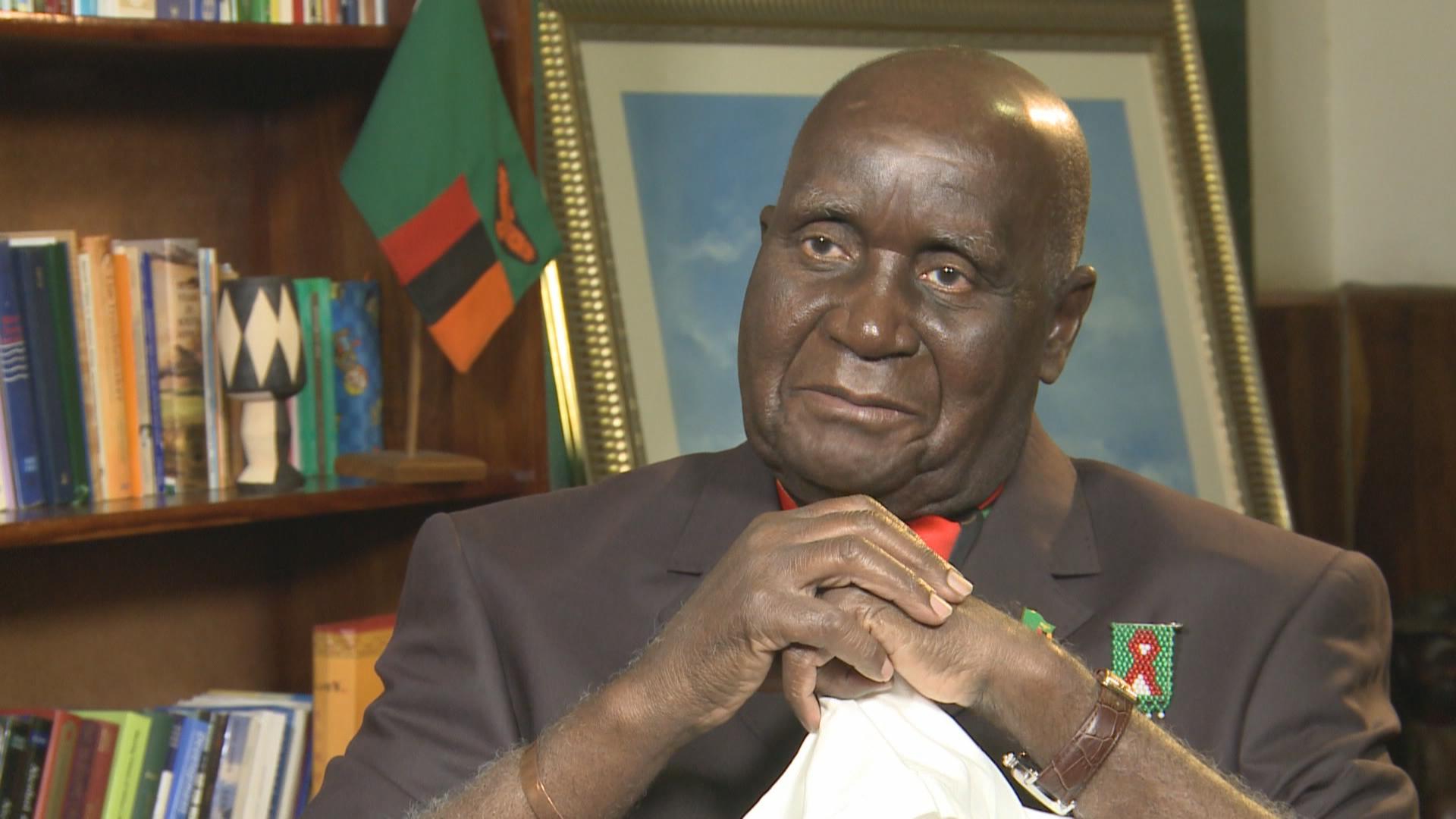
Kenneth Kaunda: Zambia’s President & Freedom Fighter Dead at 97
Former Zambian President and Freedom Fighter Kenneth Kaunda has died at the age of 97. Kaunda was being treated at a military hospital in the capital, Lusaka at the time of his death.
Kenneth David Kaunda, born April 28, 1924 in Lubwa, near Chinsali, Northern Rhodesia (now Zambia) is a politician who led Zambia to independence in 1964 and served as that country’s president until 1991. There is speculation that the region he was born in was actually Nyasaland (now Malawi) and therefore he was not a Zambian citizen.
Upon his return to Zambia in 1949 he joined the first major anti-colonial organization in Northern Rhodesia, the African National Congress (ANC) and in the 1950s assumed the role of Secretary General. Inner turmoil in the organization caused it to split, with Kaunda becoming the President of the newly formed Zambian African National Congress.
Kaunda and several activists were imprisoned but later released in 1960. He was elected president of the new United National Independence Party (UNIP), which had been formed in October 1959. When the first major elections leading to final decolonization were held in October 1962 the UNIP and ANC—gained a majority of the votes. The UNIP was the winner, gaining 15 of the 37 seats in the new Legislative Council.
In 1972, he instituted a one party rule policy through the new constitution effectively cementing his power. At the same time Kaunda assisted other countries in Southern Africa in confronting the white-minority governments of Rhodesia (now Zimbabwe) and South Africa. He applied pressure on Rhodesia by imposing economic sanctions at a great expense to his country’s own economy. In addition he allowed Zambia to be used as a base by black nationalist guerrillas led by Joshua Nkomo from Zimbabwe. Kaunda’s support for black nationalist movements in Rhodesia, South West Africa, Angola and Mozambique, aggravated economic problems in the struggling new Republic.
Even with the threat of several coups, Kaunda managed to keep power and was elected again in one candidate elections in 1978 and 1983. Worsening economic conditions and international pressure forced Kaunda to change the rules that had kept him in power. When Multi-party elections were held in 1991, Frederick Chiluba, the leader of the Movement for Multiple Democracy defeated him.
Chiluba tried several times to get Kaunda to leave Zambia including accusing him of being Malawian. He was briefly stripped of Zambian citizenship in 1999 but the decision was overturned the following year. Kaunda threatened to run against Chiluba but was barred from doing so by Constitutional amendments that made him ineligible.
On Dec. 25, 1997, Kaunda was arrested on charges of inciting an attempted coup that had occurred earlier that year. He was released six days later, but was placed under house arrest. The charges were later withdrawn in June 1998. He resigned as President of UNIP in the year 2000.
In 2002 Kaunda was appointed the Balfour African President-in-Residence at Boston University in the United States, a position he held until 2004. In 2003 he was awarded the Grand Order of the Eagle in Zambia by Chiluba’s successor, President Levy Mwanawasa.
Mr. Kaunda’s contribution to the liberation of Zambia is well noted and appreciated, however his dictatorship in the name of a one party democracy and mismanagement of the economy cannot go unchallenged.

